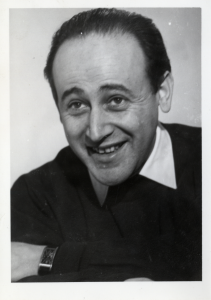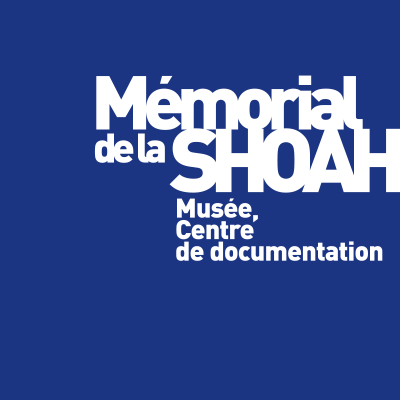Screening – Cine-Club: Tribute to Paul Celan
 Celan, the Holocaust and the German language
Celan, the Holocaust and the German language
Tribute on the occasion of the centenary of the birth of Paul Celan. Meeting dedicated to the memory of Bruno Schrager, maternal uncle of Paul Celan, deported to Auschwitz-Birkenau by convoy 57.
The conversation about man and his work will follow two axes. The first is the historiographic dimension – in the strict sense of the term – of the Celanian writing. How does Celan poetically record events from the extermination camps and the atomic bomb to the Six-Day War and in May 1968, and how does he write 20th century history in his poems? In a second step, it is the linguistic axis that will be followed. Settled in France for almost his entire life as a writer, Celan could not have written his work in another language than German, in another language than that of the organizers and executors of the destruction of the Jews of Europe.
Sunday 15 November 2020, 2 PM
Round table: Celan, the Shoah and the German language.
Participate in the round table: Celan, the Shoah and the German language
Sunday, November 15
Online screening of Wolfsbohne (...) Wolf’s Pea. from Czernowitz to Mikhailivka, documentary film directed by Thierry Valletoux.
France, Cyclops & Company, 22 min, 2019, German, Ukrainian, Romanian, French, VOstfr.
preview projection that traces the footsteps of Paul Celan and his parents in Ukraine.
Presentation of the film by Thierry Valletoux, director:
Journalist and photographer, Thierry Valletoux has long worked for the written press, notably within the editorial staff of Studio Magazine. Passionate about cinema, he became a set photographer with many filmmakers and designed several books with Claude Miller, Michel Blanc and Alain Resnais (published by Actes Sud). He regularly makes audiovisual recordings, first for the cinema, then around architecture and built heritage. He has also produced intimate portraits. Recently, he has been investigating or interviewing illustrious photographers for the new magazine LIKE.
Online screening of the film Les Eaux du Boug by Marc Sagnol
France/Germany, documentary, 92 min, Goupil cinémaginaire, Svidas Production, Traumhaus Studios, 2020.
This film, dedicated to the poet Paul Celan, starts from a quest, an initiatory journey through a country called Podolia, crossed by a majestic river, the southern Bug. During the Second World War, this country was called Transnistria and was the place of deportation of the Jews from Romania. The film goes in search of places and reconstructs the itinerary of the deportees from Czernowitz, in Bucovine, especially the mother of the poet Paul Celan, to Mikhailovka, on the edge of the Bug. The beauty of places has no equivalent but the hell into which they have turned.
Presentation of the film by Marc Sagnol, director:
Born in 1956, Marc Sagnol is a writer, photographer, and director. He was cultural attaché in Germany, Ukraine, and Russia. Assistant to Claude Lanzmann for the filming in Belarus of Sobibor, 14 October 1943, 16h (2000), he has since made documentary films devoted to places in Central and Eastern Europe and to the destruction of Jewish communities in these countries. Coordinated in 2016 the issue of Modern Times on 'Paul Celan, from Czernowitz to Paris'. Les eaux du Boug, a tribute to Paul Celan, a film he has been working on since 2012, is his first feature film (2020).
In partnership with:



With the support of the Fondation pour la Mémoire de la Shoah


